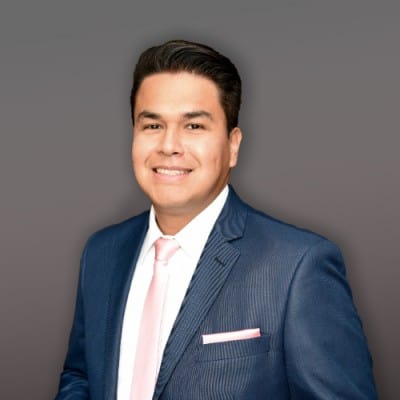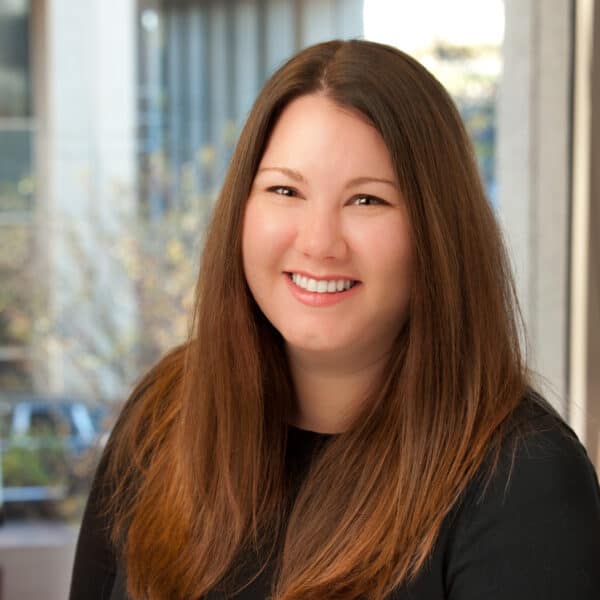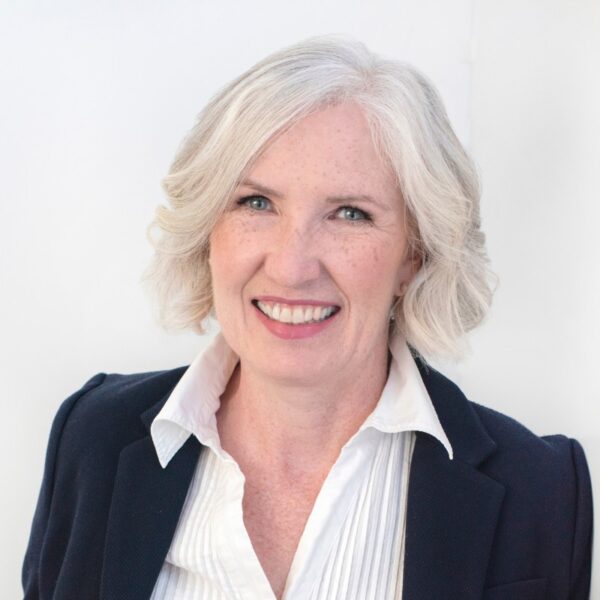
Find financial advisors specializing in serving baby boomers and who are ready to help with your financial planning needs so you can enjoy life more with less money stress.
As a baby boomer, you may be thinking about hiring a financial advisor who understands your unique financial planning challenges and opportunities as you prepare for life in retirement. Fortunately, a diverse mix of financial advisors across the country specialize in serving baby boomer clients.
Before hiring a financial advisor, it’s important to first consider your own financial planning priorities. In this guide, we’ll share a few quick tips to help you get started in your search and introduce you to financial advisors featured on Wealthtender you may want to add to your shortlist.
Table of contents
Hiring a Financial Advisor for Baby Boomers: What You Need to Know
Five Ways Baby Boomers Can Start Saving More for Retirement
The idea of saving up enough money for retirement is overwhelming to many, especially baby boomers who are quickly reaching retirement age and wondering whether or not they’ll have enough to live comfortably. Saving for retirement is one aspect of personal finance that most people need help with at some point in their lives. If you’re looking for ways to save more money for retirement, there are a few creative steps baby boomers can consider taking in the coming months and years.
Set Up Automatic Transfers to Your Retirement Account
Parting with your hard-earned money is never easy, but you can make it a lot easier by setting up automatic transfers from your bank account directly into your retirement account. Most banks can handle this as an ACH transfer, and you can decide how much money gets transferred and how often. Even setting aside just $50 of each paycheck to be transferred into your savings can make a huge difference for baby boomers approaching retirement. And when the transfer is automatic, you don’t even have the opportunity to miss the money.
Understand the Power of Compound Interest
As mentioned above, a small contribution can go a long way in terms of your retirement savings. That’s because of compound interest. The concept is quite simple, yet many baby boomers fail to understand the significant impact it can have on their retirement savings. With compound interest, even a small amount of money will continue to earn interest over time. The key, then, isn’t necessarily to dump a ton of money into your retirement account (though it’s nice if you can afford to do that) but to make regular contributions as soon as possible this way, the money has more time to accrue compound interest.
Assess Your Spending and Stick to a Budget
If you haven’t done so recently, now is a good time to assess your spending habits and look for creative ways to cut back without making any major sacrifices in the process. A good way to get started here is to download your previous three months’ worth of bank statements.
From there, separate your spending into categories, such as utilities, loan payments, entertainment, food, and the like. Are you surprised with your spending in any particular area? Perhaps you’re noticing that you spend a large amount of money on coffee each week. Instead of stopping at your favorite coffee shop every day for a $5 cup of coffee, save around $100 per month by simply brewing your own at home. These little changes can make all the difference, even for baby boomers just a few years out from retirement.
Consider Setting Up Your IRA
Even if you have a retirement plan like a 401(k) with your employer, it’s never a bad idea to set up your own individual retirement account (IRA), such as a Roth IRA, or if you’re self-employed, a SEP-IRA. With these types of accounts, you can usually contribute around $5,500 per year, which may not seem like a lot but will add up quickly.
Begin Working With a Financial Advisor
If you’re feeling overwhelmed by the entire process of trying to save money for retirement, the best thing you can do is to set up a meeting with a trusted financial advisor who understands the unique financial planning needs of baby boomers. He or she will be able to sit down with you and figure out how much you need to save for retirement and come up with some more creative ways to maximize your savings.
As you can see, there’s a lot you can do to make sure your retirement years are the best years of your life. But don’t delay; the sooner you begin working toward a better retirement, the better off you’ll be down the road.
By 2030, All Baby Boomers Will Be Age 65 or Older
Baby Boomer Insights from the US Census Bureau.
At an estimated 73 million, this generation is the second-largest age group after their children, the millennials, born from 1982 to 2000.
“As boomers age through their 60s, 70s, 80s, and increasingly beyond, the ‘big bulge’ of the boomer generation will contribute to the overall aging of the U.S. population in coming decades,” said Stella Ogunwole, a demographic statistician with the Census Bureau.
“The older population is becoming even more significant,” she said.
The number of people age 65 and older in the United States has grown rapidly over most of the 20th century, from 3.1 million in 1900 to 35 million in 2000.
In 2018, there were 52 million people age 65 and older, according to the Census Bureau’s Vintage Population Estimates. Their share of the population grew as well, from 12.4% in 2000 to 16.0% in 2018.
But aging boomers are not the only reason the nation’s population is getting older overall. Longer lives — in part due to better health care — and record low birth rates among young women are also major factors, according to Haaga.
The total fertility rate of U.S. women is now 1.7 children per woman, below the 2.1 children needed to replace the population.
Life expectancy at age 65 went from 11.9 years (1900-1902) to 19.1 years in 2010, according to An Aging World, a Census Bureau report co-authored by Wan He.
Older adults are projected to outnumber children under age 18 for the first time in U.S. history by 2034, according to Census Bureau projections.
“The mismatch between old and young will have implications across the coming years,” said Dr. Grace Whiting, president and CEO of the National Alliance of Caregivers.
“We aren’t having enough children to take care of us in our old age,” she said. “Look at my family: my in-law was one of six children, my husband and I were one of two, and we don’t have kids. Extrapolate that out, and that’s what’s happening nationwide.”
Whiting’s concern points to the increasing need for caregiver and health services for people over age 65, many of whom use services whose funding depends on decisions made based on census data.
Smart Tips for Finding a Financial Advisor for Baby Boomers
Before hiring a financial advisor, here are a few quick tips to help you find the best advisor for you.
1. Decide Which Services You Need
Before hiring an advisor, determine what services you need from them. Whether it’s full-service investment management or a plan focused on a specific area of your finances, put together a list of what you’d like help with before contacting an advisor.
Though most people use a financial planner simply to invest for retirement, this is only a small part of what many advisors offer. Here’s a quick rundown of potential services a financial advisor may offer you:
- Budgeting and money management
- Debt management
- Insurance planning
- Retirement planning
- Other investment planning
- Inheritance planning
- Estate planning
- Tax planning
As you can see, financial advisors can help you with your entire financial picture, not just investing. As you start to plan for life’s bigger milestones, you should consider finding a financial advisor that specializes in those areas.
Finding the right advisor can help you minimize risk, maximize gains and take advantage of tax breaks while investing for your future. They can also help you protect your assets with the right kinds of insurance and help you pass on your financial legacy with a proper estate plan.
2. Consider Your Budget and Payment Preferences
Once you have a list of services you would like, review the fee structures financial advisors offer. Finding a balance between the services you need and the cost of those services will help narrow down the field of advisors you may want to work with.
If you are looking for a full-service advisor to manage all of your investments, consider searching among fee-based financial advisors. If you want to manage your money yourself, consider the flat fee and monthly subscription advisors for ongoing support.
3. Interview Multiple Financial Advisors
Once you have chosen the services and fee structure you prefer, it’s time to contact a few advisors and interview them. Here are questions to ask financial advisors:
- What services do you provide?
- What are all the ways you get paid? (fee transparency)
- What is your investment strategy?
- How do you measure investment performance?
- How do we communicate about my plan?
Interview multiple advisors to get a feel for who you want to work with. A combination of fees, services, and customer service will help you determine the best fit for your financial advice.
4. Review Financial Advisor Credentials
Once you find an advisor (or two) you feel comfortable with, it’s always a good practice to check their credentials and the firm’s details. You can do this at the Investment Adviser Public Disclosure (IAPD) website.
You can check both the individual and the firm to view their background and experience details, as well as any disciplinary action taken against them or their firm.
As licensed financial professionals, there is oversight into how financial advisors conduct business, so running a quick (free) check on them is recommended.
For additional information about advisor credentials, read our article to learn the most popular designations held by financial advisors, as well as specialized credentials which may be important to consider if you have unique financial planning needs.
Get to Know Financial Advisors for Baby Boomers
📍 Click on a pin in the map view below for a preview of financial advisors who specialize in serving baby boomer clients. Or choose the grid view to search our directory of financial advisors with additional filtering options.
📍Double-click or pinch pins to view more.
🙋♀️ Have Questions About Financial Planning for Baby Boomers?
Frequently Asked Questions & Additional Resources
How do I know if I’m ready to hire a financial advisor?
You should strongly consider hiring a financial advisor if you have a significant amount of money available for saving or investing. This could occur after years of making annual contributions to a retirement plan like a 401(k) through your employer or suddenly if you receive a large inheritance or sell your house for a large profit.
But even if you don’t have a lot of money saved, many financial advisors and planners provide reasonable pricing options and valuable services you should consider, especially if you’re facing a significant life event. For example, if you’re starting a new job, getting married, starting a family, getting divorced, lost your job, starting or selling a business, or approaching retirement age, working with a trusted financial advisor or planner may prove worthwhile.
Before I hire a new financial advisor, should I fire my current advisor?
You don’t need to fire your current advisor before beginning your search for a new financial advisor. In fact, your new advisor can help coordinate the transition of your assets from your previous financial advisor.
Where can I read reviews about financial advisors written by their clients to help me decide if I should hire them?
After 60 years of regulatory prohibition of financial advisor reviews in the US, a rule issued by the Securities and Exchange Commission (SEC) became effective on May 4, 2021 that means both financial advisors and directory websites that help consumers search for a financial advisor can collect and display financial advisor reviews, an important factor worth considering when choosing who you’ll hire to manage your investments and life savings.
Wealthtender is the first independent advisor review platform designed to be fully compliant with the new SEC rule, and we look forward to helping you evaluate financial advisors based on reviews written by their clients.
I’m a financial advisor interested in being featured in this guide. How do I get started?
Thanks for your interest. We look forward to learning more about your practice and helping you attract your ideal clients where you may be a good fit based on their individual needs and circumstances. Please click here to learn how you can join local financial advisors featured on Wealthtender.
About the Author

About the Author
Brian Thorp
Brian is CEO and founder of Wealthtender and Editor-in-Chief. He and his wife live in Austin, Texas. With over 25 years in the financial services industry, Brian is applying his experience and passion at Wealthtender to help more people enjoy life with less money stress. Learn More about Brian

































